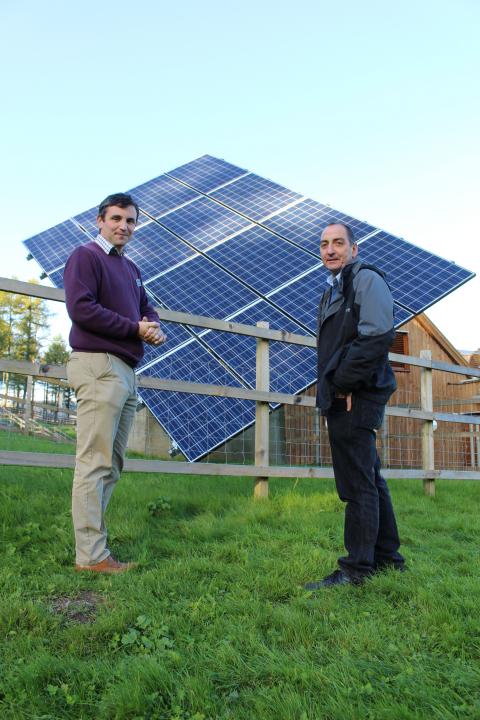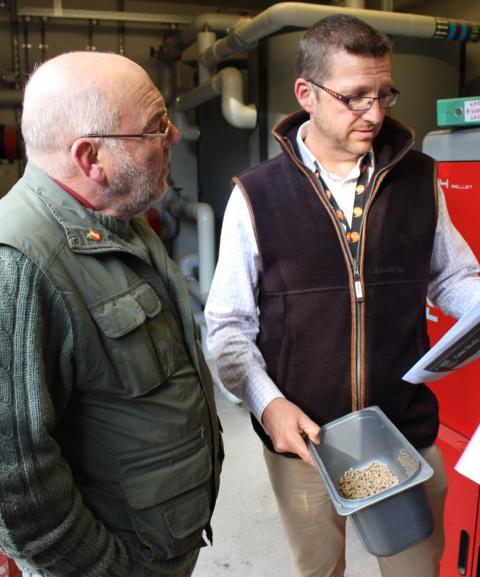Despite reduced financial incentives, installing renewable energy systems on farms still offer a long-term investment opportunity and the potential to make existing businesses more sustainable.
Decreasing Feed-In Tariffs for electricity generated by renewables and power exported back to the grid may make new installations a less attractive proposition for farmers as they will receive a lower annual income and take longer to achieve payback on their investment. However, energy bill savings for farm businesses can still be significant.
“We installed a small hydro system on the farm in December 2011 and it’s one of the best things we’ve ever done. It’s changed our business in terms of sustainability,” farmer Russell Edwards, of Blackmill, Bridgend told a joint event run between Farming Connect, Natural Resources Wales (NRW) and the Brecon Beacons National Park Authority.
Mr Edwards installed a 6kW hydro system, which generates 28,000kWh of electricity a year and earns about £4,000 a year in Feed-in Tariffs. The system paid for itself within four years and the family have now also installed a ground source heat pump, which has slashed their domestic heating bill and also earns money through tariffs.
One way to mitigate reductions in tariffs can be to pre-register a scheme with energy regulator Ofgem once planning consent, installation design and all the necessary licences and approvals are in place.
“You’ve then got two years to complete the work, but you will have the tariff that applied at the time of registration, not a lower one on the day you connect,” Ieuan Williams, a land agent for NRW said at the event, which was held at the Garwnant Forest visitor centre, Merthyr Tydfil, where NRW has installed a biomass boiler, roof-mounted solar panels and a solar tracker system, which rotates to follow the sun’s movements during the day. Work is also about to start on a hydro scheme.
After the first full year of operation the solar installation had generated 9,619kWh of electricity, saving the centre £1,318. The 45kW biomass boiler has 2,500 litres of thermal storage, saving 19 tonnes of carbon.
The event also outlined the technical issues and regulatory aspects of renewable systems, with NRW officers advising people to commission in-depth feasibility studies of their plans, having all relevant surveys completed early and applying for planning permission as soon as possible.
Kate Edwards, a senior planning officer for the Brecon Beacons National Park Authority highlighted typical planning considerations for renewable schemes such as visual impact, the impact on neighbours, biodiversity and footpaths and site management.
“Common problems with planning applications include a lack of clear information, plans that are incorrect or not to scale, insufficient information on what is being affected and specific details of the hardware to be used.”
She urged people considering renewable energy schemes within the Brecon Beacons National Park to take advantage of free planning constraints checks, which the authority is offering for three months.
More information about renewable energy schemes, licences and planning is available on the national park and NRW websites.
Farming Connect has established a new mentoring scheme allowing farmers and foresters to receive support and guidance from their peers. A considerable number of the farmers and foresters available as mentors have invested in renewable energy schemes on their own farms and are keen to share their experiences.
For further information please contact -
Einir Davies 01970 636297 einir.davies@menterabusnes.co.uk


